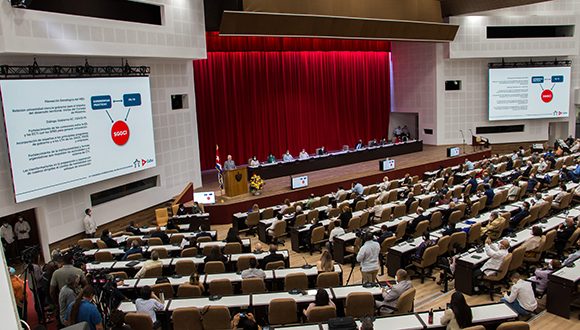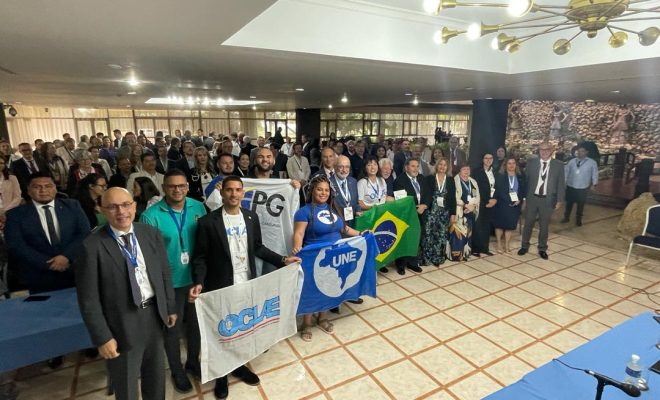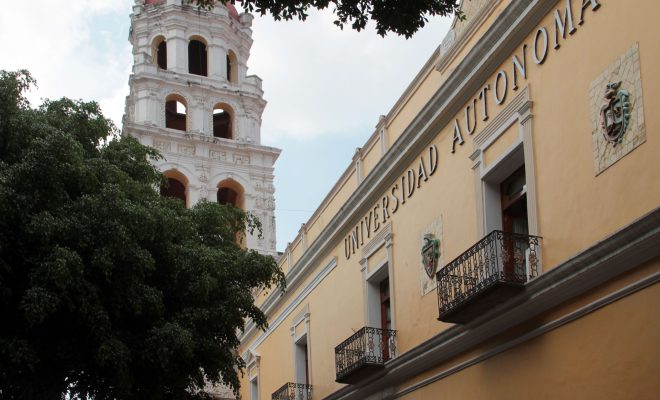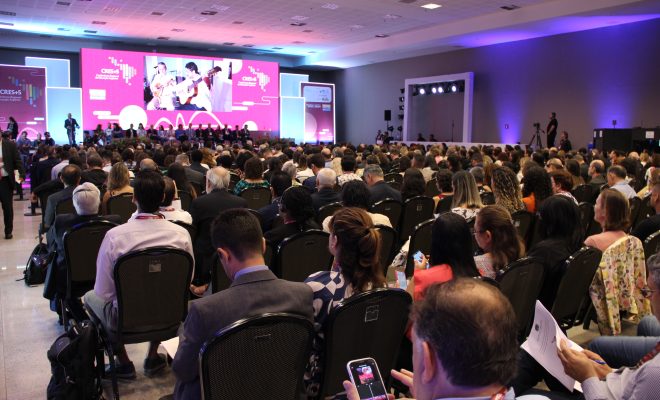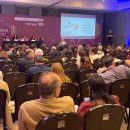Internationalization and regional integration is one of the axis of CRES+5

The Axis 3 of the CRES+5 – follow-up meeting to the III Regional Conference on Higher Education for Latin America and the Caribbean (CRES 2018) – will focus on “Higher Education, internationalization and regional integration in Latin America and the Caribbean”. CRES+5 will be held from March 13th to 15th in Brasilia (DF). The aim is to analyze the achievements of higher education in Latin America and the Caribbean and, at the same time, establish priorities for the next Regional Conference on Higher Education.
During CRES 2018, several topics that continue to be crucial for the work of this axis were highlighted. Among these, the consolidation of regional cooperation through the recognition of studies, degrees, diplomas and competencies, the strengthening of academic regional integration, especially through networks and consortia such as ENLACES, and the promotion of South-South cooperation as a humanistic and solidarity-based approach to international cooperation.
The role of internationalization has also been emphasized as a key tool for the transformation of higher education, favoring the formation of citizens and professionals committed to interculturality, capable of living and working in the conjunction between the territorial and the global. In this sense, internationalization should be included in the training of teachers, researchers and higher education workers, as well as the consolidation of the international dimension at the three levels of the educational process: teaching-learning processes; curricular structure and content; and the design of institutional policies.
In relation to emerging issues, the entry into force of the new Convention for the Recognition of Studies, Degrees and Diplomas in Higher Education in Latin America and the Caribbean, in October 2022, and of the Global Convention on the Recognition of Qualifications concerning Higher Education, in March 2023, places new emphasis on academic mobility and employability at the international level.
Likewise, the expanded use of information technologies in the educational system has generated new dynamics of connection and collaboration within and between academic communities in different countries, shaping a new paradigm of internationalization, which requires new institutional approaches and capacity building for the positive use of ever-changing technological trends.
Participants – The experts leading the construction of Axis 3 are: Diana Araujo Pereira, rector of the Federal University of Latin American Integration (UNILA), Brazil; Maritza Rondón Rangel, rector of the Cooperative University of Colombia (UCC); Nicolas Maillard, associate professor at the Federal University of Rio Grande do Sul (UFRGS), Brazil and Telémaco Talavera Siles, general coordinator of KAIRÓS-Education, Nicaragua.
Base Document – The draft base documents resulting from the activities of the WGs responsible for each thematic axis of CRES+5 are now available. The fourth preparatory meeting for the Conference took place in Havana, Cuba, on February 7 and 8, and the drafts of these documents were discussed.
The regional call for contributions to CRES+5 is still open. Higher education institutions, organizations and networks in Latin America and the Caribbean can participate (via a specific form) in the collective construction of the Conference’s follow-up meeting, with comments or documents that reflect their considerations of the main challenges facing higher education in the region.
The contributions received were reviewed by the experts responsible for each of the 12 thematic axes of the Conference, who evaluated their relevance for inclusion in the preparation of the base document corresponding to their respective thematic axis.
CRES+5 – The follow-up meeting to CRES 2018, called CRES+5, is being organized by MEC, through Sesu and Capes, in collaboration with UNESCO IESALC. Rectors, directors, academics, workers, students, higher education networks, associations and professionals, research centers, unions, representatives of governmental and non-governmental organizations and all those interested in higher education in the region are invited to this meeting.
Among the preparatory activities for the CRES+5 follow-up meeting, different instances of open and participatory debate were organized in the region as part of the methodological construction process of the event. Throughout 2023, in-person meetings were held in Córdoba (Argentina); Puebla (Mexico); and Asunción (Paraguay). In addition, preparatory virtual public consultations were held to debate and collect information on the 12 thematic axes of CRES+5, as well as to contribute to the organization of the Conference. The fourth preparatory meeting was held in Havana, on February 7th and 8th, 2024 within the framework of the University Congress 2024.
Registration for CRES+5 can be made until February 13, 2024 using the form available on the respective website. More information about the Conference can be obtained through the website or email cres5@unesco.org.
CRES – The III Regional Higher Education Conference 2018, held in Córdoba (Argentina) in June 2018, adopted a Declaration and an Action Plan 2018-2028. Furthermore, it committed to holding a follow-up meeting five years later, CRES+5, aiming to promote a participatory process to highlight the progress achieved, as well as remaining challenges and emerging issues, especially in the wake of the Covid-19 pandemic crisis. 19. CRES+5 will be an opportunity to analyse the achievements of higher education in Latin America and the Caribbean and, at the same time, establish priorities for the next Regional Conference on Higher Education, in 2028.
MEC Social Communication Advisory, with information from Sesu and UNESCO IESALC

